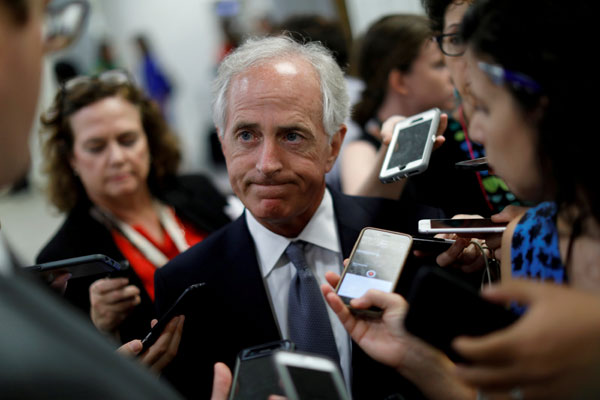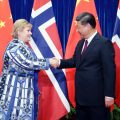
WASHINGTON/MOSCOW/BRUSSELS – US lawmakers reached an agreement on Wednesday paving the way for the US Senate to pass a bill as soon as this week to impose new sanctions on Russia and bar President Donald Trump from easing sanctions on Moscow without Congress’ approval.
Earlier on Wednesday, Russia warned it was edging closer to retaliation against Washington after the House of Representatives backed new US sanctions on Moscow, while the European Union said the move might affect its energy security and it stood ready to act too.
“I am glad to announce that we have reached an agreement that will allow us to send sanctions legislation to the president’s desk,” Senator Bob Corker, the Republican chairman of the US Senate Foreign Relations Committee, said in a statement on Wednesday evening.
He said the Senate would move to approve sanctions on Russia and Iran that it originally passed in mid-June, as well as sanctions on the Democratic People’s Republic of Korea (DPRK) developed by the House of Representatives and included in a bill the House passed overwhelmingly on Wednesday.
Before the latest agreement, some senators had objected to the DPRK measures and it had looked like the sanctions bill, already delayed since mid-June, could languish into September.
If the bill passes the Senate as expected, it would be sent to the White House for Trump to sign into law or veto. It is, however, expected to garner enough support to override a Trump veto.
The House voted 419-3 on Tuesday to impose new sanctions on Moscow and force Trump to obtain lawmakers’ approval before easing any punitive measures on Russia.
“This is rather sad news from the point of view of Russia-US ties,” said Dmitry Peskov, a Kremlin spokesman. “We are talking about an extremely unfriendly act.”
He said President Vladimir Putin would decide if and how Moscow would retaliate once the sanctions became law. Russia’s deputy foreign minister warned the move was taking bilateral relations into uncharted waters, killing off hopes of improving them in the near future.


